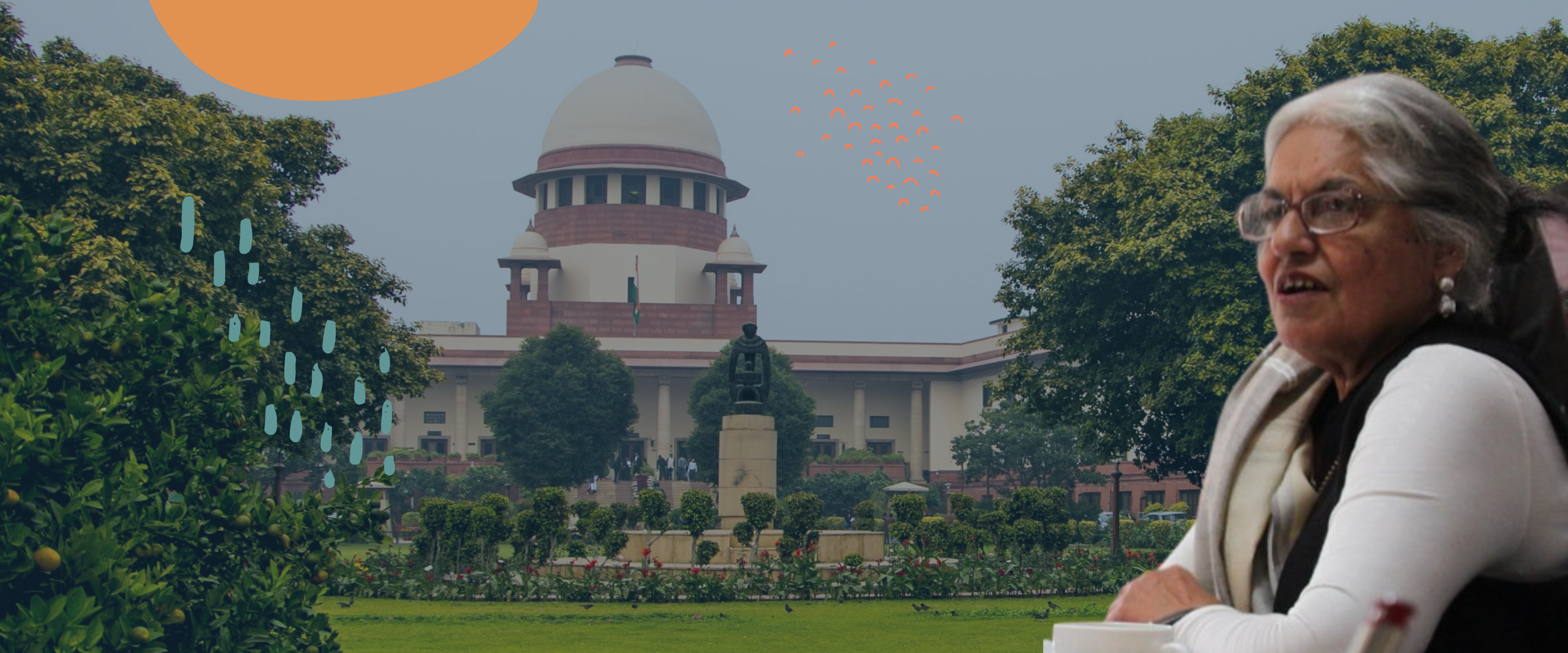Analysis
Interview with Indira Jaising – Triple Talaq
Sr. Adv. Indira Jaising represented Bebaak Collective and was instrumental in convincing the court to strike down Triple Talaq

In Shayara Bano v UOI, a five-judge Bench of the Supreme Court struck down the practice of triple talaq as unconstitutional. Former Additional Solicitor General Indira Jaising represented Bebaak Collective and was instrumental in convincing the court to strike down the practice. In this interview with Supreme Court Observer, Indira Jaising talks about the judgment, its social impact and how the court stood short of its commitment to gender justice owing to Bench optics, as well as the jurisprudence of the case.
1) How historic is the Triple Talaq judgment?
Ms.Indira Jaising – Not all of it is historic . The judgment of the then Chief Justice and Justice Nazeer is regressive. To the extent that Justice Rohinton Nariman and Justice UU Lalit allow a constitutional challenge to the Sharia Act of 1929, it is historic. It is also a first of its kind in allowing codified personal laws to be challenged on the ground that it violates fundamental rights. This is the beginning of a rich gender jurisprudence in the field of family law, which is mainly codified. On the other hand, to the extent that Justice Khehar and Justice Nazeer say that personal laws are protected by the right to religion, it is totally regressive and must be overruled soon for a sane society. Look at the horrific consequences of what they are saying, a practice which the Muslims themselves consider sinful is a fundamental right. History will prove him wrong. They have seriously damaged the cause of gender justice. They are in a minority on this view and hence their opinion is not the law of the land.
2) What could be the social impact of the judgment considering Muslim Women are among the most marginalised sections of the society?
Ms.Indira Jaising -It has already unleashed the energy of Muslim women and liberated them form fear of being unilaterally divorced. They are in the drivers seat, they have the courage to confront clerics and the All India Muslim Personal Law Board (AIMPLB) and that is what matters today.
3) Do you see this Triple Talaq judgment as a narrow one because no judge addressed the messy question of the inviolability of un-codified personal law as laid down in Narsau Appa Mali?
Ms.Indira Jaising – Yes, it was a lost opportunity to exorcise the ghost of Narasu Appu Mali . I do not understand why the Supreme Court choses to live with ghosts in the closet or an elephant in the room. It was the right occasion to overrule it. To some extent the ghost in tow is visible and has been battled by Justice Nariman when he says that the Sharia Act to the extent that it recognises Triple talaq as a valid form of divorce is unconstitutional and “manifestly unjust”. But why did they fight shy of saying that it violated the right to non-discrimination based on sex, I don’t know.
4) Do you think that the ‘gender justice’ jurisprudence of court has been significantly strengthened after judgments like Haji Ali (Bombay High Court) and now, this?
Indira Jaisingh – Yes but let us not forget that Sabarimala is staring us in the face and it is anybody’s guess what the court will decide. Will they be influenced by the minority judgment of Justice Khehar and Justice Nazeer or the judgment of Justice Nariman? That is like asking me to be an astrologer, which I will not be.
5) The Government and its supporters may misinterpret the judgment which bans the instant triple talaq as implicit approval for a Uniform Civil Code. What do you have to say to that?
Ms.Indira Jaising – No comments. We will wait to see what the government does, not what they say. In any event they have already said that they will not pass any law for divorce for Muslims as suggested by Justice Kehar
6) Lastly, how do you see the absence of a Woman judge on the Bench considering it had the optics of great religious plurality?
Ms.Indira Jaising – This is absolutely tragic. Religious plurality did nothing for the court and may have actually damaged it – the judgment loses some of its legitimacy by not having a woman on the Bench.
